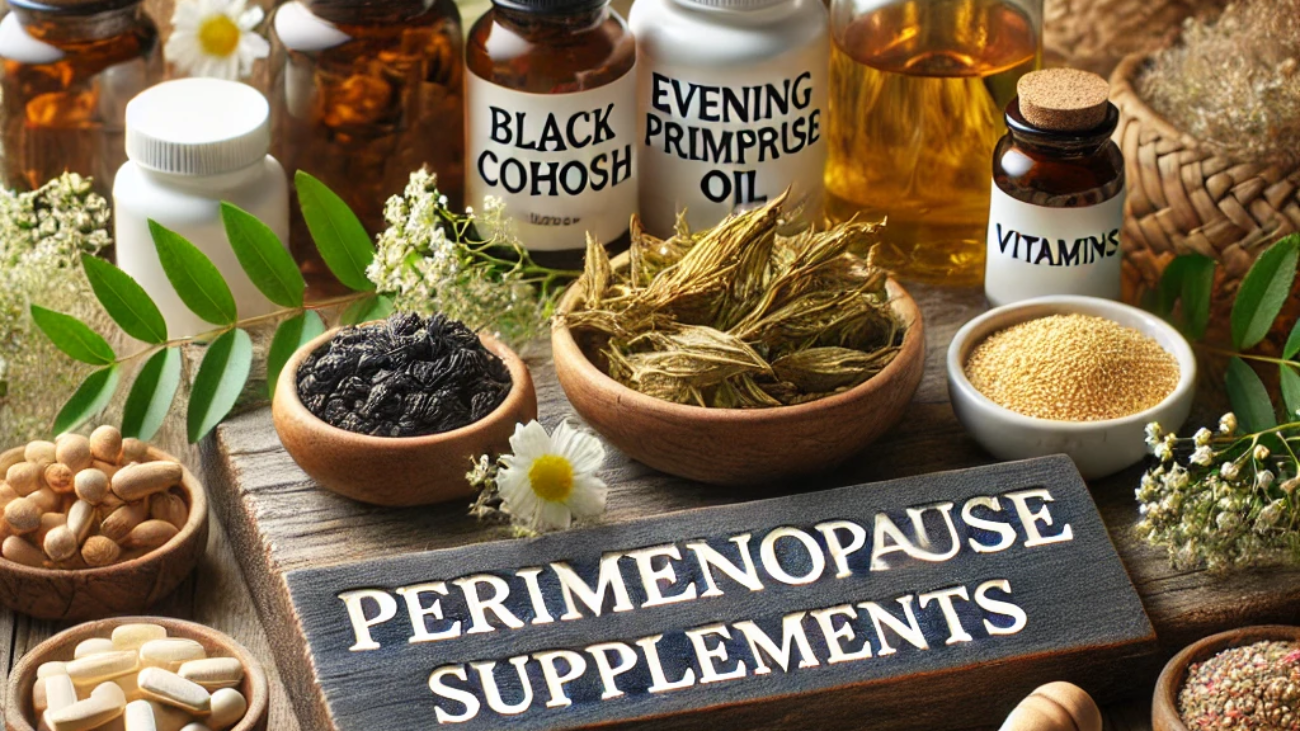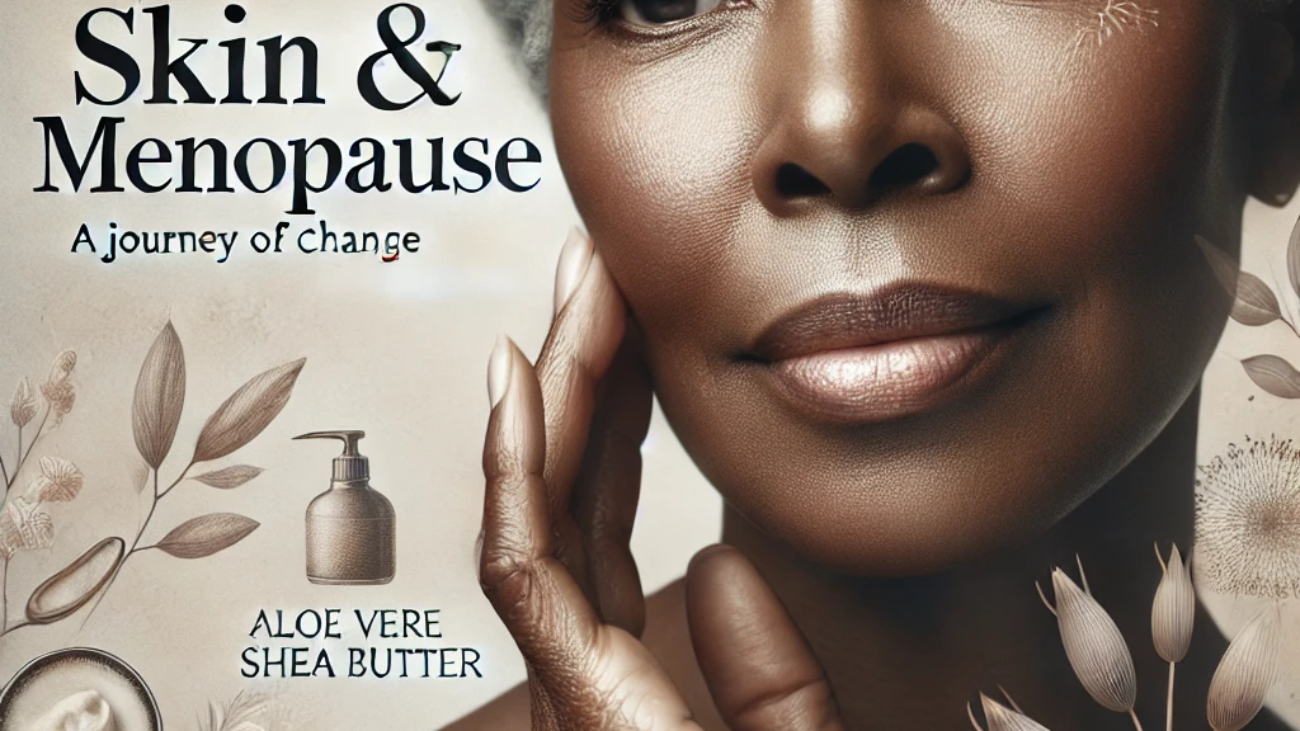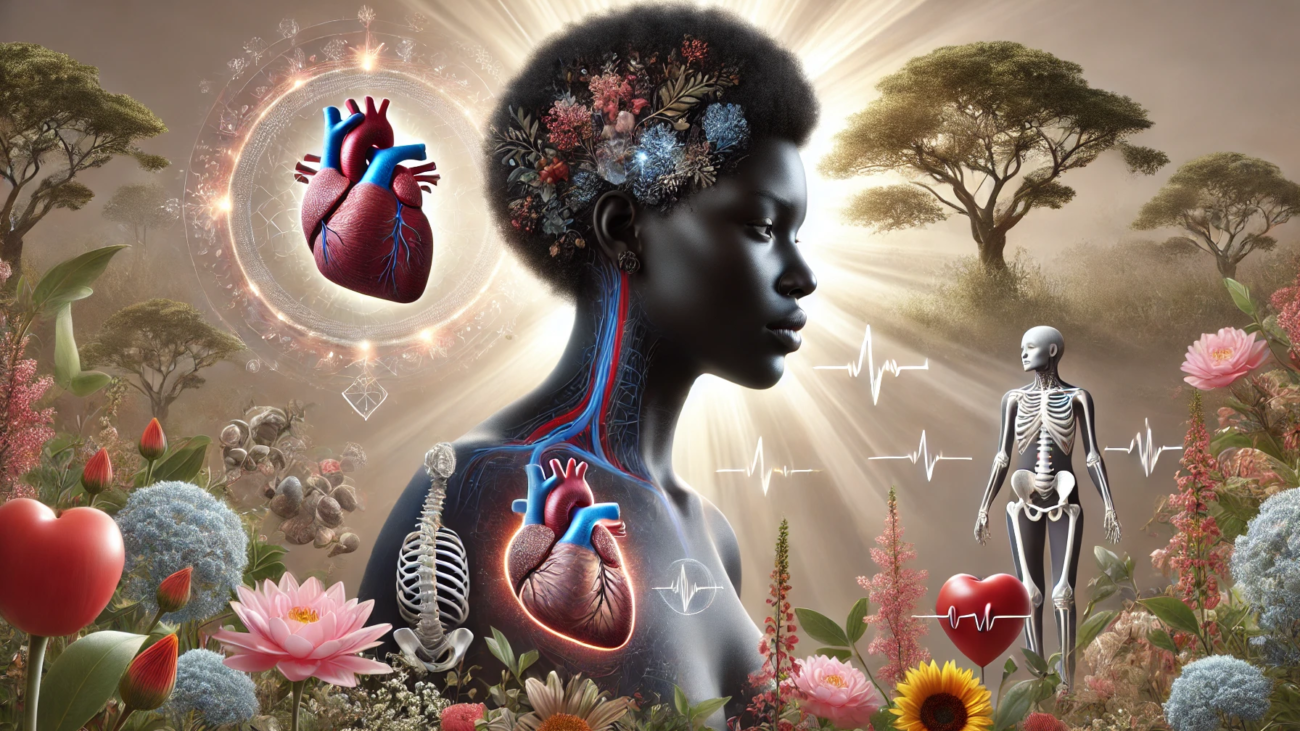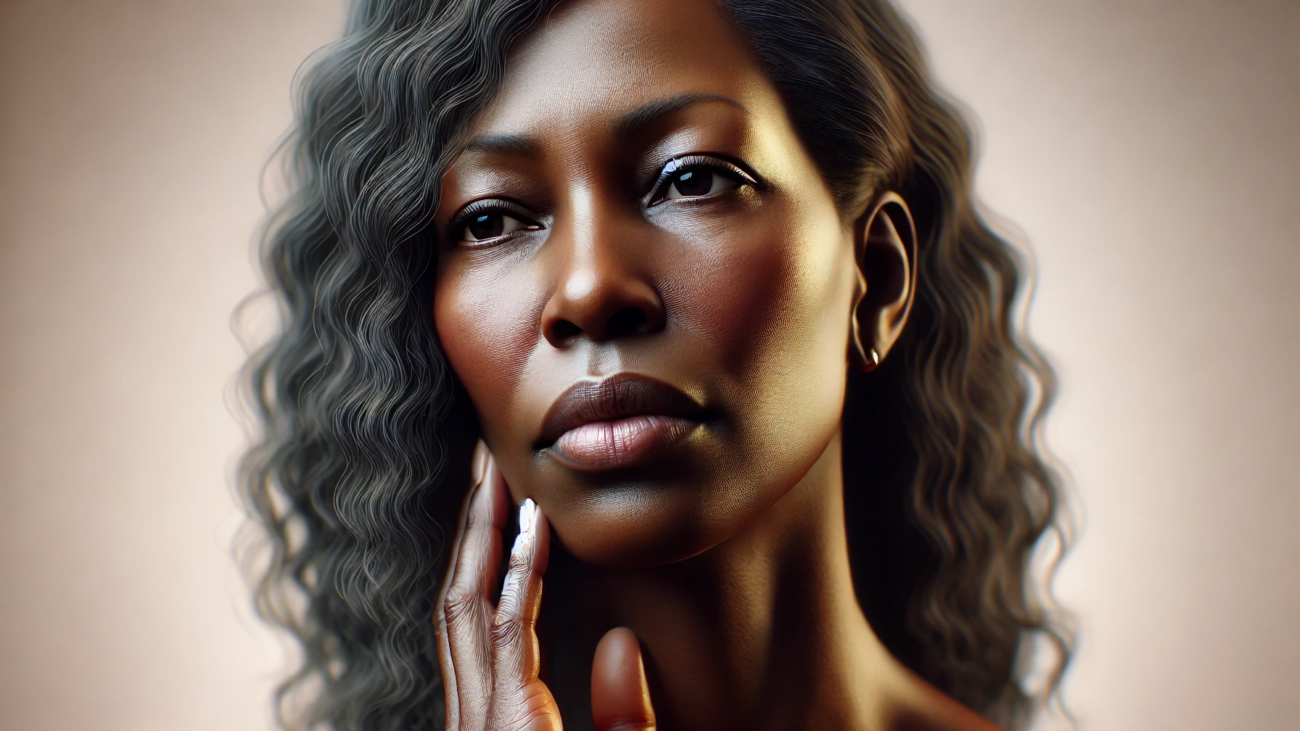The Unseen Beginning
For Margaret, the signs were subtle at first. A missed period here, a little more sweat at night there. At 47, she wasn’t too concerned. After all, she had lived through decades of stressful life events—raising two children, navigating a high-pressure career, managing household chaos—so she was used to handling life’s ups and downs. But what she didn’t expect was how menopause would creep up on her like an invisible thief, stealing her sense of normalcy bit by bit.
One night, Margaret woke up drenched in sweat, her heart pounding as though she had been running a marathon. It wasn’t a nightmare; it was just another episode of what she would later learn were “night sweats.” But the sweats were just the beginning. Slowly, her emotions began to shift. She started feeling more anxious, something unfamiliar to her. Anxiety felt like a shadow that lingered over her every day, no matter how bright the sun was shining outside.
“I just didn’t feel like myself anymore,” Margaret shared. “I didn’t know what was happening to me. I felt lost.”
Losing Yourself
The loss of identity during menopause is something many women experience but rarely talk about. It’s not just about physical changes; it’s about feeling like a stranger in your own body. For years, you’ve known who you are. You’ve understood your strengths, your emotions, your body’s signals. But menopause? It throws everything out the window.
Karen, a 52-year-old teacher, described it as “waking up one day and not recognizing the woman in the mirror.”
“I was always confident, always in control of my emotions. But during menopause, I felt like I was on a roller coaster ride with no brakes. One moment, I’d be fine, and the next, I’d be in tears over something as simple as burning dinner. It was terrifying.”
The emotional toll menopause takes on mental health is often underestimated. It’s easy to dismiss mood swings as just another symptom, but for many women, they’re more than that—they’re waves of uncontrollable emotions that can lead to feelings of depression and anxiety.
The Weight of the World
For Lisa, a mother of three, menopause didn’t just bring mood swings; it brought an overwhelming sense of sadness she couldn’t shake. “I felt like I had this cloud hanging over me all the time,” she said. “It wasn’t just sadness—it was this deep sense of loss. I couldn’t explain it. I had a loving family, a stable job, everything I had ever wanted, but I still felt like something was missing.”
What Lisa didn’t know was that the hormonal changes during menopause were impacting her mental health in ways she couldn’t control. The decline in estrogen, a hormone that also plays a role in regulating mood, was causing her to feel more emotional and vulnerable than ever before. The mental fog, the irritability, the fatigue—it was all part of the hormonal rollercoaster.
But for Lisa, like many others, these feelings didn’t just affect her; they affected her relationships. “I started withdrawing from my family. I didn’t want to be a burden. I didn’t want them to see me struggling, so I kept it all inside. But that only made things worse.”
The Silent Struggle
The mental health struggles that come with menopause often feel isolating. Society has long treated menopause as something that should be endured in silence. Women are told that it’s “just a part of life” and to “push through it.” But pushing through can feel impossible when your mind is battling thoughts of inadequacy, loneliness, and fear.
For Sophie, 49, the loneliness of her menopause journey was the hardest part. “I felt like no one understood. Even other women my age didn’t seem to talk about it. It was as if we were all pretending everything was fine, when in reality, I was falling apart inside.”
Sophie began experiencing severe anxiety during menopause. It started small—she would feel anxious about little things like going to the grocery store or making a phone call. But over time, her anxiety grew until she couldn’t leave the house without feeling a sense of dread.
“I felt like I was losing my mind. I didn’t understand why I was so scared all the time. I had never been an anxious person before, but now, even the simplest tasks felt overwhelming.”
Sophie’s story isn’t uncommon. Many women report experiencing heightened anxiety, panic attacks, or even depression during menopause. It’s not just a hormonal issue—it’s an emotional and psychological battle.
The Power of Connection
But amidst the storm, there is hope.
For many women, the turning point in their mental health journey during menopause comes when they stop fighting the battle alone. When they find others who understand, who have walked the same path and survived, something shifts. The power of connection—of knowing you’re not alone—can be a lifeline.
That’s what saved Mary.
At 53, Mary had been dealing with menopausal depression for two years. She had tried to hide it from her friends, from her family, from everyone. But the weight of it all became too much to bear. “One day, I just broke down. I couldn’t pretend anymore. I called my best friend and told her everything. To my surprise, she started crying too. She told me she had been going through the same thing, but she didn’t know how to talk about it.”
That conversation changed everything for Mary. “Knowing that someone else understood what I was feeling—it was like a light had been turned on. Suddenly, I didn’t feel so alone.”
Mary’s story shows how important it is to talk about mental health during menopause. The more we share our stories, the more we realize that we’re not isolated in our struggles. There’s power in vulnerability, and sometimes, simply saying, “I’m not okay,” can be the first step toward healing.
Finding Peace in the Storm
The emotional and psychological challenges of menopause are real, but they don’t have to define a woman’s journey. While the hormonal changes can cause havoc, there are ways to regain a sense of control.
For some women, therapy becomes a crucial tool in navigating the mental health challenges of menopause. Cognitive-behavioral therapy (CBT) can help manage anxiety and depression by teaching women how to reframe their thoughts and cope with overwhelming emotions. Others find solace in mindfulness practices, yoga, or meditation—ways to reconnect with their bodies and calm the mind in the midst of chaos.
Hormone replacement therapy (HRT) is another option for many women, helping to balance hormone levels and reduce symptoms that impact mental health. It’s a deeply personal choice, and while it’s not right for everyone, for some women, it can provide relief from the emotional toll menopause takes.
Support groups, whether in-person or online, can also offer a sense of community and understanding. Women who share their experiences and listen to others often find that the storm doesn’t seem so terrifying when they’re not facing it alone.
Embracing the New Self
Perhaps one of the most profound lessons menopause teaches is that change, while painful, can also lead to growth. The storm of menopause strips away the familiar and forces women to confront their fears, their emotions, and their sense of self. But in that confrontation, there’s an opportunity for transformation.
“I’ve learned to be kinder to myself,” says Helen, 55. “Menopause broke me down, but it also taught me to build myself back up in a different way. I don’t feel like the same person I was before, but that’s okay. I’m stronger now, more resilient. I’ve weathered the storm, and I’ve come out the other side.”
For many women, menopause marks the beginning of a new chapter—a chapter where they prioritize their mental health, where they allow themselves to feel vulnerable, and where they embrace their true selves, flaws and all.
Beyond the Storm
The connection between menopause and mental health is complex and deeply personal. Every woman’s experience is different, but what remains the same is the emotional journey it takes you on.
Menopause is not just a physical transition; it’s an emotional and psychological transformation. It’s a time of upheaval, yes, but it’s also a time of growth. And while the journey through menopause can feel isolating, women are not alone in their struggles. Sharing stories, seeking help, and embracing the changes are all part of the process.
If there’s one takeaway from this journey through the storm, it’s this: Mental health during menopause matters. The feelings of anxiety, sadness, and fear are not just “symptoms” to be brushed off—they are real, valid, and deserving of attention and care.
Women navigating menopause are warriors. They endure a battle that is unseen, one that tests their resilience, but also one that gives them the opportunity to rediscover their strength.
So, to every woman in the midst of the storm, know this: You are not alone, and there is peace waiting for you on the other side. Embrace the journey, honor your emotions and know that you are stronger than the storm.
Rediscovering Joy
After years of navigating the emotional upheaval of menopause, many women come to a realization: the storms may pass, but joy is something you can reclaim. For some, it takes years to reach this point; for others, it comes sooner. The clouds of anxiety, depression, and emotional instability don’t define the entire experience of menopause.
Jennifer, a retired nurse who went through early menopause in her 40s, spoke about the day she finally found her footing again. “I had forgotten what it felt like to laugh. To really laugh. I spent so long drowning in feelings of sadness and frustration that I forgot what it meant to feel lighthearted. It wasn’t an immediate shift, but over time, I noticed small changes. I started laughing again with friends, finding joy in simple things like gardening or reading a book. It was like rediscovering myself after years of being lost.”
The journey to rediscovering joy looks different for every woman. For some, it’s about reconnecting with old hobbies or passions. For others, it’s about forging new paths—traveling, learning something new, or building deeper relationships with family and friends. The important thing to remember is that menopause, while challenging, doesn’t mark the end of life’s joys. In fact, it can be a catalyst for reevaluating what truly brings happiness and fulfillment.
Family and Friends – The Ripple Effect
While the focus of menopause is often on the woman going through it, we can’t overlook the ripple effect it has on those around her. Partners, children, friends, and co-workers often witness the emotional and psychological changes but may not understand how to support their loved one. It’s important for them to recognize that menopause is not just a “phase” to be ignored, but a significant life transition that requires empathy and understanding.
Marie’s family struggled with this at first. “My husband didn’t know what to do with me. He saw me breaking down, crying over nothing, and getting angry for no reason. He didn’t get it. He tried to be patient, but he would also withdraw because he didn’t want to say the wrong thing. It created this gap between us.”
What Marie’s story reveals is a common experience for many women—feeling disconnected from their loved ones during menopause because of the lack of understanding about what they’re going through. This is where open communication becomes key. The more women talk openly about their mental health challenges during menopause, the more their partners and families can understand and offer support.
“I finally sat down with him one day and explained what was going on,” Marie continued. “I told him how scared and anxious I felt, how out of control my emotions were. That conversation changed everything. He started reading about menopause, we went to therapy together, and he became my biggest ally. It made all the difference.”
Support from loved ones doesn’t have to come in grand gestures. Sometimes, it’s the little things—listening without judgment, offering a hug, or simply asking, “How can I help?” These moments of empathy create a bridge over the emotional gaps that menopause can create, strengthening relationships rather than allowing them to fracture.
Breaking the Silence
One of the biggest challenges surrounding menopause and mental health is the culture of silence that still exists. While more women are beginning to speak up about their experiences, there’s still a lingering stigma that menopause is something to be endured quietly, rather than openly discussed. This silence only serves to perpetuate feelings of isolation and misunderstanding.
But change is on the horizon. Women’s health advocates, medical professionals, and even celebrities have begun breaking the silence around menopause, bringing it into the public conversation. These voices are challenging the outdated notion that menopause is just a “women’s issue” and highlighting the broader implications it has on mental health, relationships, and overall well-being.
Elizabeth, 50, became an outspoken advocate for menopause awareness after her own struggles with depression during this time. “I was ashamed to talk about it at first. I thought it was a personal failure—like I should have been handling it better. But then I realized that by staying silent, I was doing a disservice to myself and other women going through the same thing. So, I started speaking up. I talked about my experiences with my friends, my colleagues, even on social media. And the response was overwhelming. Women came out of the woodwork to share their own stories. It was like this collective sigh of relief—finally, we could talk about it.”
The more women like Elizabeth share their experiences, the more normalized these conversations become. And with normalization comes progress—progress in medical research, progress in workplace policies, and progress in how society views and supports women during menopause.
Embracing Post-Menopause Life
After the storm of menopause passes, there’s a new phase waiting: post-menopause. For many women, this is a time of renewal and empowerment. The hormonal fluctuations settle, the intense emotional swings subside, and there’s a sense of peace that comes with having weathered the hardest part of the journey.
Catherine, who is now in her late 60s, reflects on this phase of her life with a sense of calm. “Menopause was rough, no doubt about it. But coming out the other side has been a gift. I feel freer now—free from the pressures I used to put on myself. I don’t care as much about what other people think. I’ve learned to prioritize my mental health and well-being, and I’m living my life on my terms.”
For many women, post-menopause is a time to redefine themselves. Without the hormonal swings dictating their emotions, they can focus on what brings them peace, joy, and fulfillment. It’s also a time to reflect on the strength it took to navigate the challenges of menopause and to embrace the wisdom that comes with age.
Post-menopause is often described as a time of clarity—a period when women can look back on their journey and recognize their resilience. The emotional storms may have tested them, but they emerged stronger, more self-assured, and ready to embrace this new chapter of life.
The Importance of Self-Care
One of the key lessons many women learn through menopause is the importance of self-care—both physical and mental. For years, women are conditioned to put others first—whether it’s their children, partners, careers, or families. But menopause forces a reckoning. It demands attention, not just to the physical symptoms, but to the emotional and mental toll as well.
Angela, 54, found that her journey through menopause taught her how to be more compassionate with herself. “I used to think self-care was selfish,” she admitted. “But then menopause hit, and I realized I couldn’t keep giving to everyone else without giving something to myself. I started taking small steps—meditation, journaling, taking walks. Those little acts of self-care became lifelines. They helped me stay grounded when everything else felt like it was spinning out of control.”
Self-care during menopause isn’t just about pampering yourself—it’s about creating a mental and emotional space where healing and balance can occur. It’s about recognizing that mental health is just as important as physical health and that you deserve time to nurture both.
For some women, self-care might look like therapy or counseling. For others, it might be exercise, creative expression, or even simply setting boundaries in relationships. Whatever form it takes, the important thing is to acknowledge that self-care is essential, not optional, during this life transition.
A New Beginning
As the storm of menopause settles, there’s a powerful realization that emerges: menopause is not an ending—it’s a new beginning. It’s a time of profound change, yes, but it’s also a time of opportunity. The emotional and mental health challenges it brings are real, but they also offer the chance for self-reflection, growth, and transformation.
As women move through the phases of menopause and beyond, they come to understand that this journey is a rite of passage. It’s a transition that, while difficult, ultimately leads to a deeper understanding of themselves. It’s a time to shed old identities, embrace new roles, and find strength in vulnerability.
“I’m proud of the woman I’ve become,” said Linda, 60. “Menopause wasn’t easy—it was one of the hardest things I’ve ever been through. But it taught me so much about myself. I learned that I’m stronger than I ever knew. I learned how to ask for help, how to prioritize my mental health, and how to love myself through the hardest days.”
For every woman reading this, whether you’re in the midst of the storm or looking back on it, know this: Menopause is a part of your story, but it’s not the whole story. It’s a chapter in a much larger narrative—one that is still being written. And in that narrative, there’s room for joy, for peace, for laughter, and for the endless possibilities that lie ahead.
The Legacy of Strength
As we close this journey through menopause and mental health, let’s remember the legacy of strength that every woman carries with her. Menopause is not just a biological transition; it’s an emotional and psychological one that touches every aspect of a woman’s life. It tests her resilience, but it also shows her how powerful she truly is.
And perhaps most importantly, it teaches all of us—the women who go through it and the loved ones who support them—that mental health is not something to be taken lightly. It’s a vital part of the human experience, deserving of care, attention, and compassion.
So, as the storm passes and the sky clears, may every woman find her peace, her strength, and her joy. Because she has earned it.







